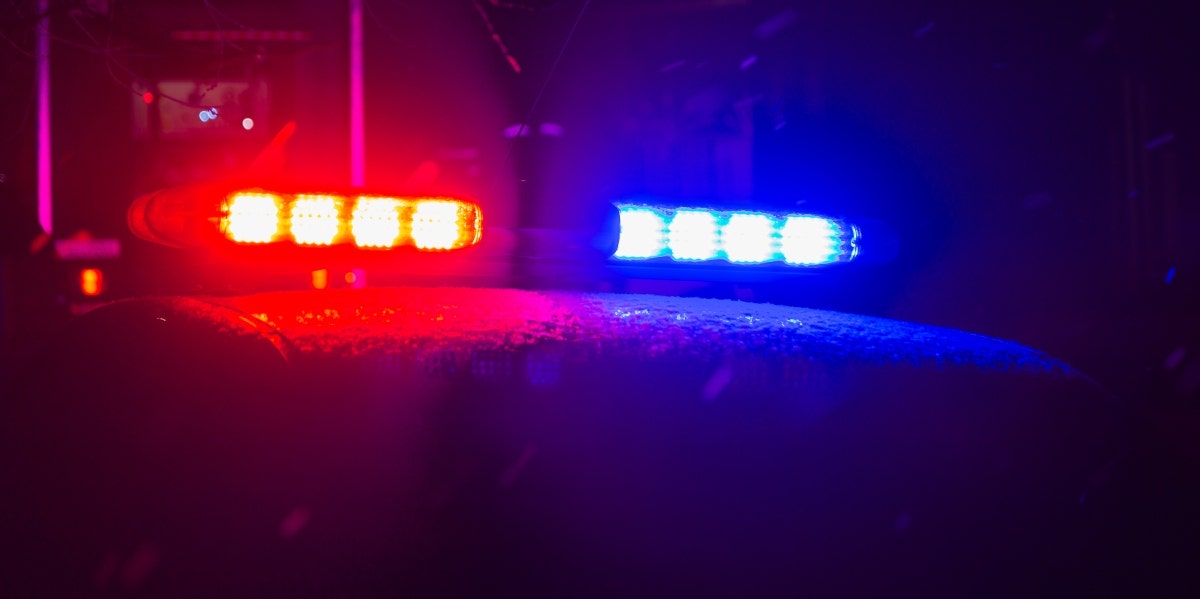Newark, NJ Police Did Not Fire A Single Bullet In 2020 — Why Crime Rates Went Down Anyway
Other cities should take note
 Shutterstock
Shutterstock Newark police could become the greatest contemporary example of why police reform works after their dropping crime rate coincided with a year free from police shootings.
Newark police did not fire a single shot in 2020, meaning the city didn’t spend a dime to settle police brutality cases.
Crime has dropped in the New Jersey city proving that a revamping of policing as we know it can be successful if done right.
Newark’s efforts to minimize police brutality come amid growing support for the Defund The Police movement, which has been calling for police reform and the end of racially motivated police brutality.
This movement advocates for increased funding for community and social projects that would work in tandem with police to diffuse crime both before and as it happens.
Newark’s reliance on increased police training and assistance from community organizations is a testament to the success of this new model of public service.
Police reform comes after an extensive investigation into corruption.
Newark police reforms are a result of a federal consent decree which came after a July 2014 investigation by the Department of Justice.
The investigation examined decades of corrupt policing, racism, and widespread brutality, concluding that there was a “pattern and practice of unconstitutional policing by the Newark Police Department.”
Use of force was high in the police department but reporting was low, meaning that few police officers were reprimanded for unjust actions.
As part of their efforts to improve law enforcement within the department, Newark police hired more Black and non-white police officers, expanded their training programs, and required detailed reporting on the use of force.
Under the Trump administration, the DOJ was prohibited from intervening in state and local police departments, so important decrees like Newark’s have not been enacted in recent years.
Newark is using community support instead of bullets to diffuse crime.
Key leaders in the city have made a conscious effort to understand and respond to outrage about police brutality both locally and nationally.
Mayor Ras Baraka was a leading activist against police brutality even before taking office and Police Director Anthony Ambrose took a knee during local protests after George Floyd was murdered by Minneapolis police officer Derek Chauvin.
This culture of mutual understanding and respect has proved successful by replacing force with compassion.
During the George Floyd protests, the Newark police department also enlisted the support of the Newark Community Street Team to diffuse the unrest.
Street Team is made up of former offenders who work with the city’s most violent neighborhoods. They were able to engage with violent protestors and communicate with them rather than take the combative approach displayed by police officers and the National Guard in other U.S. cities.
The community based tactic has also been adopted by Newark police who now spend time reviewing videos of challenging scenarios to prevent a paramilitary approach to law enforcement.
Police are now taught to buy time and attempt to engage offenders. Brian O’Hara, the deputy chief overseeing training says:
“It’s not about resolving the situation as quickly as you can, it’s about protecting the sanctity of every life.”
Newark crime rates fell below national averages in 2020.
Rates of serious crime in Newark have dropped 40% in the past 5 years. On a national level, the percentage decrease in violent crime has remained in the single digits.
Newark also reports their homicide rate decreased in 2020. Meanwhile, on a national level, early figures suggest that we’re going to see the largest one-year increase in murder rates that we’ve ever seen.
Chicago, Los Angeles, and New York saw murders jump by 50%, 30%, and 40%, respectively, in comparison to 2019 figures.
Overall, crime in Newark has dropped by 6%. Police officers in the city also recovered almost 500 illegal firearms on the streets in the same year, which will hopefully allow for a continuously decreasing crime rate for years to come.
There is still plenty of work to do to end police violence in Newark.
While the reforms in Newark are a step in the right direction, the city is not immune to police violence yet.
2020 was a year spent largely indoors in Newark and across the U.S., so crime rates and use of police force must be taken with a pinch of salt.
Equally, on January 1, just hours after ending a historic year on police use of force, an undercover Newark police officer shot and killed Carl Dorsey III, a Black man who is said to have had his hands up and was complying with police before shots were fired.
The case is now being investigated by Newark’s attorney general, who has moved police investigations out of local hands in order to create impartiality.
Dorsey’s death is a reminder that police reform needs to be a constantly evolving practice that doesn’t let success lead to complacency. Newark, like every city in the U.S. can look forward to many years of police reform to come.
Alice Kelly is a writer living in Brooklyn, New York. Catch her covering all things social justice, news, and entertainment. Keep up with her Twitter for more.
